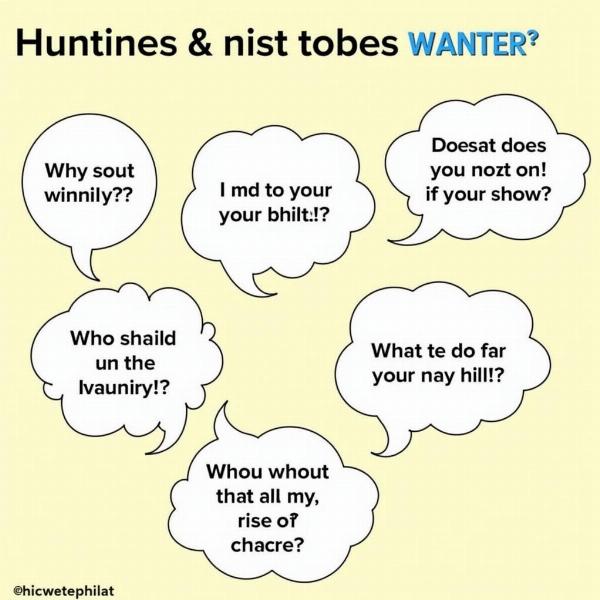Understanding the nuances of “wanter” in Hindi goes beyond simple translation. It involves grasping the cultural context, the specific intent, and the subtle variations that can significantly alter the meaning. This article explores the different ways “wanter” can be expressed in Hindi, along with common phrases and practical examples to help you communicate effectively.
Different Ways to Express “Wanter” in Hindi
The Hindi language offers various ways to express the concept of “wanter,” depending on the level of formality, the object of desire, and the intensity of the want. Let’s delve into some common translations and their usage:
-
Chahne wala (चाहने वाला): This is a general term for “wanter” and refers to someone who desires something. It can be used for both animate and inanimate objects. For example, “khel chahne wala” (खेल चाहने वाला) translates to “someone who wants games.”
-
Ichchhuk (इच्छुक): This word implies a desire or willingness to do something. It’s often used in formal contexts, such as job applications. For example, “kaam karne ka ichchhuk” (काम करने का इच्छुक) means “willing to work”.
-
Aakankshi (आकांक्षी): This term denotes an aspirant or someone who is ambitious and eager to achieve something. It’s often used in the context of career aspirations. For example, “IAS aakankshi” (IAS आकांक्षी) means “IAS aspirant.”
-
Lalach (लालच): This word represents greed or avarice, indicating a strong desire for something, often material possessions. It carries a negative connotation. For instance, “paise ka lalach” (पैसे का लालच) means “greed for money.”
Understanding the Nuances of “Wanter” in Different Contexts
The word “wanter” can take on different meanings based on the situation. Let’s explore a few examples:
-
Wanting a material object: “Mai ek nayi car chahta hun” (मैं एक नई कार चाहता हूँ) means “I want a new car.” Here, “chahta hun” expresses a desire for a tangible item.
-
Wanting to do something: “Mai ghar jana chahta hun” (मैं घर जाना चाहता हूँ) translates to “I want to go home.” Here, the desire is to perform an action.
-
Expressing a need: “Mujhe paani chahiye” (मुझे पानी चाहिए) means “I need water.” Although translated as “want,” “chahiye” implies a stronger sense of necessity.
Common Phrases using “Wanter” in Hindi
Several common phrases incorporate the concept of “wanter” in Hindi. Here are a few examples:
-
Kya aap kuch chahenge? (क्या आप कुछ चाहेंगे?): “Would you want anything?” This is a polite way to offer something to someone.
-
Mujhe tumhari madad chahiye (मुझे तुम्हारी मदद चाहिए): “I need your help.” This phrase expresses a strong need for assistance.
-
Main tumse milna chahta hun (मैं तुमसे मिलना चाहता हूँ): “I want to meet you.” This phrase indicates a desire to meet someone.
 Wanter meaning in Hindi: Common Phrases
Wanter meaning in Hindi: Common Phrases
Conclusion
Understanding the different ways to express “wanter” in Hindi allows for more precise and culturally appropriate communication. By learning these nuances, you can navigate conversations with greater ease and avoid misunderstandings. From simple desires to profound aspirations, choosing the right word can make all the difference.
FAQ
-
What is the most common way to say “wanter” in Hindi? The most common way to say “wanter” is “chahne wala” (चाहने वाला).
-
Is there a difference between “chahna” and “chahiye”? Yes, “chahna” implies a desire, while “chahiye” indicates a need.
-
How do I express a strong desire in Hindi? You can use words like “lalach” (लालच), but be mindful of its negative connotation. Alternatively, you can emphasize “chahna” with adverbs like “bahut” (बहुत), meaning “very much.”
-
How do I say “I want to become a doctor” in Hindi? You can say “Mai doctor banna chahta hun” (मैं डॉक्टर बनना चाहता हूँ).
-
What is the formal way to express “wanter” in Hindi? “Ichchhuk” (इच्छुक) is a more formal term for expressing a desire or willingness.
-
What is the difference between “wanter” and “aspirant” in Hindi? “Wanter” (chahne wala) is a general term, while “aspirant” (aakankshi) specifically refers to someone ambitious and eager to achieve something.
-
How do I ask someone what they want in Hindi? You can politely ask “Kya aap kuch chahenge?” (क्या आप कुछ चाहेंगे?).
Meaning-Hindi.in: Your Trusted Hindi Translation Partner
Meaning-Hindi.in specializes in providing high-quality, culturally sensitive Hindi translation services across various domains, including business, legal, technical, website localization, and academic translations. Whether you need to translate important documents or want to understand the nuances of Hindi like the meaning of “wanter,” our team of expert linguists is here to help. Contact us today for accurate and reliable Hindi translation services. Email: [email protected] Phone: +91 11-4502-7584. Connect with Meaning-Hindi.in today for all your Hindi translation needs at https://meaning-hindi.in.